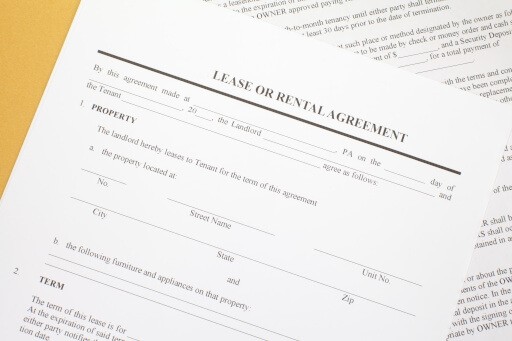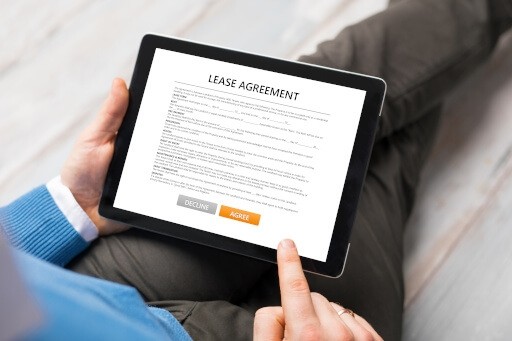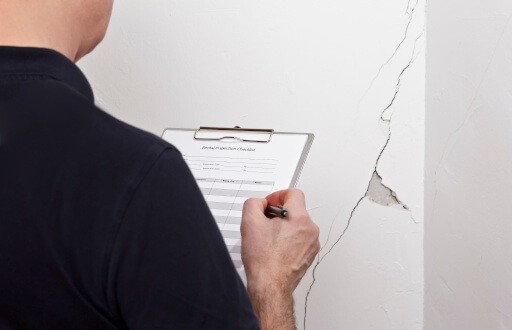As a responsible landlord, creating a welcoming environment for your tenants is crucial. Happy tenants often translate into long-term occupants, which benefits both parties. However, it's essential to understand that your tenants have certain rights, including the covenant of quiet enjoyment. This legal provision ensures that renters can enjoy peace and privacy without unnecessary intrusion from the landlord. Nevertheless, it's also important to recognize that as a landlord, you have rights, too. It's essential to abide by the law when entering the rental property, whether notice is required or not. In this article, we will explore the rights of landlords to access rental properties and how it relates to the covenant of quiet enjoyment.
First, Check Your State Laws
Many states have specific laws on how much notice a landlord must give a tenant before entering the property. While the required notice varies from state to state, a common requirement is at least 24 hours. Often, the notice is required to be delivered in writing. Research your state laws to know what’s required in your area.
Your state may include some exceptions to the notice requirement. These exceptions are usually put into place for things like emergencies, but you are still required to announce yourself and state the reason for needing access to the property before entering.
Include a Clause in the Lease
Adding a clause to your lease, especially if your state doesn’t specify how much notice you are required to give your tenants, will help prevent any issues later. Clearly defined boundaries will establish reasonable expectations between you and your tenants, which is always good for resident retention. Here is an example lease clause:
Landlord’s Access for Inspection and Emergency
Landlord or Landlord’s agents may enter the premises in the event of an emergency, to make repairs or improvements or to show the premises to prospective buyers or renters. The landlord may also enter the premises to conduct an annual inspection to check for safety or maintenance problems. Except in cases of emergency, the tenant’s abandonment of the premises, court order, or where it is impractical to do so, the landlord will give the tenant 24 hours' notice before entering.
Keep in mind the above is only an example. You’ll want to adjust the wording and amount of notice provided to comply with your state and local laws. Having your real estate attorney review any clauses you add to your lease agreement is a good idea.
How to Give Tenants Notice
While some courts will allow printed-out emails as proof of official notices, several states specify that the notice must be delivered in writing. If the notice doesn’t meet the state’s requirements, the tenant can claim the notice was improperly delivered. Your state may require written notice, and it might even specify that it needs to be delivered by certified or first-class mail. Other states allow “written or oral” notice, so you can simply call your tenant about an upcoming visit. In Washington, DC, the law allows notice to be delivered as both “written and electronic (including email and mobile text messaging),” but if the tenant doesn’t acknowledge the electronic notice, the landlord must then provide a paper notice.
5 Legitimate Reasons a Landlord Can Enter a Rental
While your tenants have the right to quiet enjoyment, there are times when you’ll need to visit your rental property to deal with an emergency or make repairs. Review your state laws to know how much notice is required in the following situations.
1. Routine check for maintenance and safety issues
You’ll likely want to make yearly, semi-yearly, or quarterly inspections of your property. After all, you want to protect your investment, and the way to do this is by inspecting and maintaining it. While you have the right to inspect the property, make sure you are giving proper notice as required by your state laws.
Several states require landlords to perform a move-out inspection to look for damage. Even if your state doesn’t require one, having this inspection before your tenant moves out is a good idea. Schedule the inspection well in advance and try to find a time when your tenant is available to walk through with you. This way, you can discuss any issues and have them sign the inspection form.
2. An emergency
If there is a fire, water leak, or another type of emergency, you are legally allowed to enter your property. In some states, you don’t have to give notice before entering in the case of an emergency.
3. When a repair or service is needed
If your tenant contacts you about something that needs to be fixed, either you, your representative, or a repair person of your choice can enter the property to make repairs. In most states, you are required to give proper notice before you or the repair person enters the property.
Try to leave non-essential repairs until after your tenant moves out. If you are constantly requesting access to make minor or non-essential repairs, this could be considered harassment.
4. To show the property
Most states allow landlords to show the property when it is for sale or rent. You’ll most likely have to notify your tenants in advance. Try not to show the property excessively. Instead, try to keep showings to two or three days during the week or ask your tenants when they are at work and try to show the property then. While you have the right to show your property to prospective buyers or tenants, you must give the notice required by your state laws. In most states, you can only show the home during “reasonable hours.” In many cases, “reasonable” isn’t clearly defined, so use regular business hours as your guideline.
As long as you adhere to your state requirements and you aren’t showing the property so often or at odd hours that you interfere with your tenant’s right to quiet enjoyment, you should be fine showing your property to potential renters or buyers.
5. When tenants leave for an extended period
If your tenant is gone more than a week, most states allow you to enter to make sure everything is okay and to perform preventive maintenance. Some states, like Connecticut, require a tenant to notify the landlord when they will be gone from the premises for an extended amount of time.
If your rental is in a cold-weather state, you might want to include a clause in your lease agreement requiring notification of an extended absence (usually seven days or more) so you can drain the pipes to prevent breakage.
What If Tenants Don’t Let the Landlord In?
If a tenant refuses to let you in even though you’ve given proper notice, you could hold them in violation of their lease agreement and send them an “agree or quit” notice. In this case, the tenant would allow entry or give up the property. If they refuse to do either of these things, you would then be able to file for an eviction. Your tenant is not allowed to change the locks or withhold keys from you. These actions would give you grounds to terminate the lease.
To avoid this scenario, add a clause to your lease agreement that specifies the types of access required and the amount of notice that will be provided. Make sure you aren’t violating your tenant’s right to quiet enjoyment. While it is your property, this is also your tenant’s home. While you have the right to enter the property when necessary, your tenant also has the right to privacy.
What Happens if You Enter Unlawfully?
Entering a tenant's home without permission or proper notice isn't just disrespectful—it can also lead to legal repercussions. Depending on the severity of the violation, you could face anything from fines to lawsuits for invasion of privacy.
It's crucial to maintain open and respectful communication with your tenants. If you need to access their unit, give them adequate notice, and respect their rights to privacy.
The Bottom Line
Both landlords and tenants need to abide by state and local laws, as well as the lease agreement. If you set realistic expectations up front and communicate openly with your tenants, you should be able to gain access to your property without a hitch when necessary. To reduce the risk of signing an uncooperative tenant, use Rental Tools on Apartments.com, which provides you with comprehensive tenant screening to help you find the right renter.











